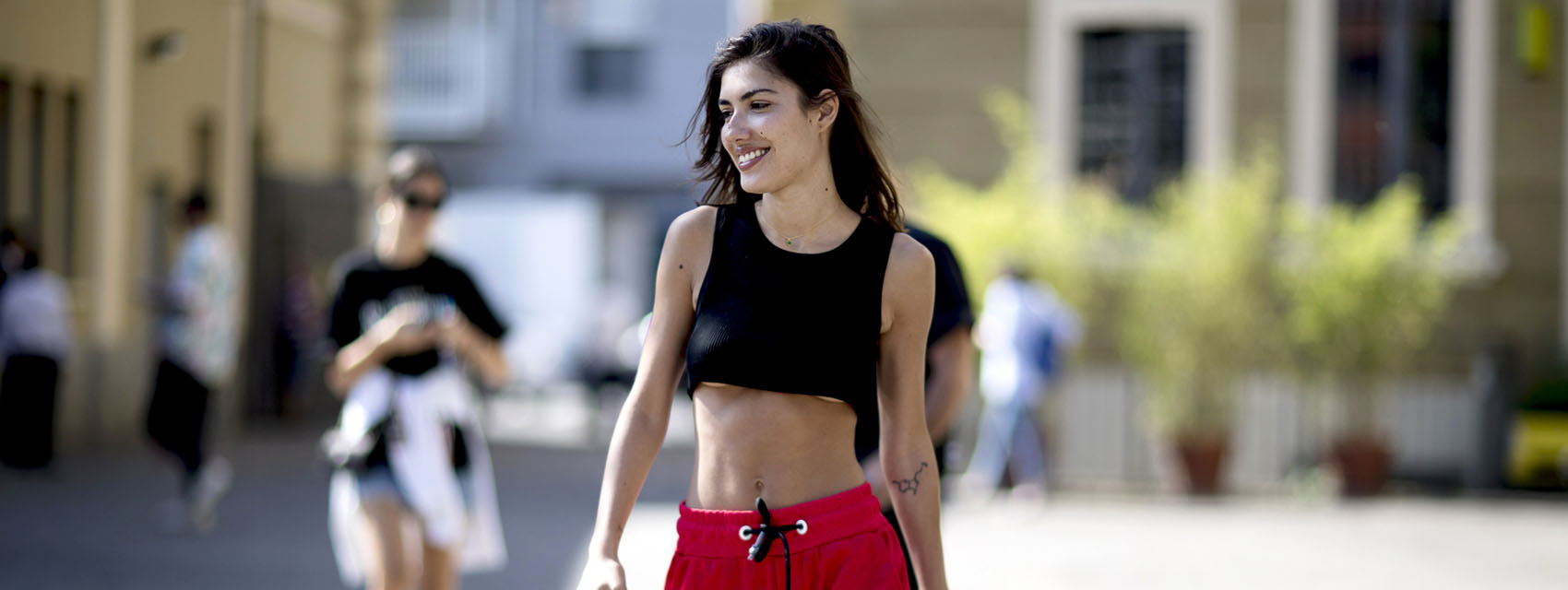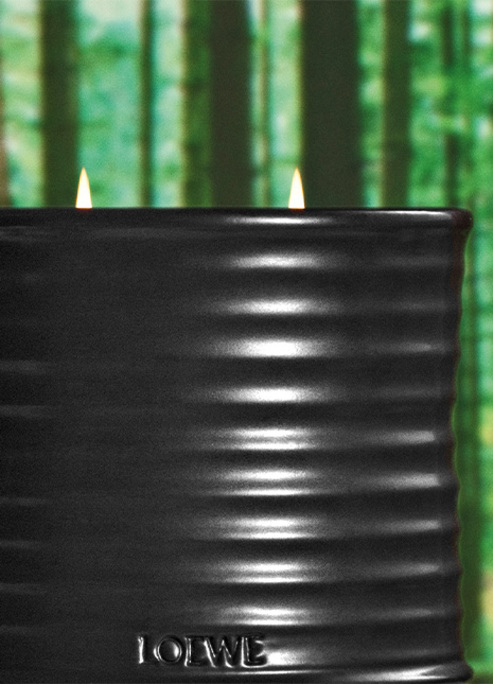How To Make A U-Turn Out Of Depression
Hint: it's all about the little things.
So you've reached the point when your bed's become your new HQ, you're deep in an Instagram rabbit hole leading straight to insecurity wonderland, Siri's become your therapist, the self-help guide your mum bought you for Christmas is now a very useful door stop, and you feel like you accidentally left the “old you” behind at the supermarket self-checkout along with that vegan bacon you knew were never going to eat anyway. I feel ya.
Seriously though, depression makes you feel drained, disconnected, unmotivated, worthless and helpless. It's real, it's terrifying and it's on the rise. According to the World Health Organization, globally, more than 300 million people of all ages suffer from depression: the leading cause of disability worldwide, and a major contributor to the overall global burden of disease.
You can't scroll through your news feed without reading the latest shocking mental health story – bad news if all you're in it for is political memes and cat videos. It's great that we're talking about it more but the overwhelming sea of statistics can tend to depersonalize the issue. And then there's the medical websites – even some doctors – who are frustratingly guilty of the one-size-fits-all attitude, leaving some of us feeling even more alienated than before.
Having struggled through three episodes of depression, I've learned that there really is no magical recovery formula or lasting quick fix. In my experience, it's the small, manageable steps that make a world of difference.
Spend some time in the real world
Sorry, but Instagram is such BS. Don't lie to yourself and try to justify your excessive scrolling as “finding creative inspiration” or pretend your latest selfie wasn't the result of ten or twenty trial-and-error angles and three different photo-editing apps. Also, don't be surprised when anyone tells you that those mega-hot, mega-cool, mega-successful Instagram stars you're following probably aren't quite as perfect or as happy as they would like you to believe. My point is, Instagram is like your weird uncle's inappropriate jokes: it should be taken with a pinch of salt. We're all so addicted to our phones, to the ceaseless visual stimuli, and the external validation of our peers that we trick our brains into thinking all of this is real – and worse, that it's worth feeling shit about.
Instagram used to be one of my biggest triggers. I didn't care much for followers, but I did have the self-destructive habit of following women with model looks and physical qualities that deep down I knew were impossible for me to achieve. It was a kind of insidious fitspo, except with absolutely no desire to exercise; it made me feel hopeless, angry and sometimes even physically sick – but most of all, ugly. The best antidote: go cold turkey on that shit, none of it even matters anyway. I learned the hard way that the only beauty standard worth my attention is self-acceptance. Also, the real world is totally underrated.
Take a new challenge
Like any good recovery advice, this one really depends on you. If you're so depressed that you find it hard to get out of bed, you're probably thinking I'm a silly bitch with absolutely no idea about anything. Well, I also used to spend days in unmotivated, disengaged lock down, and by new challenge I don't mean sign up for the London marathon, or actually read that generic self-help guide your mum got you for Christmas. Start a depression diary where you can privately (or publicly if you're brave) express all of your thoughts and emotions. Not only is it a great way to process negativity, but an empowering tool for regaining mental control and recording your progress.
If you're feeling up to it, think about how you can re-engage with your hobbies and interests. (If your hobby and interest is getting baked, stop reading here, you frickin' stoner, and skip to the next point.) You might find it hard to believe, but I found relief in listening to techno and ever so slowly got back in touch with my bedroom mixing hobby. Thanks to a gentle push from my boyfriend, we set the wheels in motion to start a monthly radio show and club night, and two months later I found myself behind the DJ booth, the unlikely recipient of dance floor applause. I never ever thought I would have the confidence to be a DJ, but reconnecting with my passion gave me momentum – something to look forward to again – and made me believe I was worth something after all.
Quit smoking weed on weekdays
The jury's out on whether marijuana use negatively affects depression. While many studies point towards a correlation, it's hard to say whether that's because those with existing depression are more partial to regular use than others. It's also important to note that due to a number of factors – not least the THC dosage – weed affects everybody differently. I got into smoking when I felt mentally sound, simply because I loved getting high, chatting shit and listening to music. I'm not sure whether my daily use led to my next depressive episode several months later, but it did become a coping mechanism. The drug's amotivational effects are well-recognized, and looking back, my lack of mental clarity undoubtedly postponed my recovery and amplified negative emotions. You can't just rub your magic bong and expect your problems to disappear – unless your name's Aladdin and that's more than just a carpet on your bedroom floor. My advice: save the devil's lettuce for the weekend and see if your symptoms improve. It will also minimize the chance of depression relapse.
Get in tune with your body
The reason exercise is held up as the holy grail of depression cures is because it pretty much is. There's nothing like exercise for boosting endorphins (i.e your mood), reducing stress, improving sleep and raising self-esteem. And before you tell me you're allergic to weights or anything in lycra, even moderate-intensity exercise can make a difference. A 2016 study concluded that “to acutely improve depressed mood, exercise of any intensity significantly improved feelings of depression with no differential effect following light, moderate, or hard exercise.” In short: your grandma was right when she told you everything feels better after a good walk. Of course, you get bonus anti-depressant points if your choice of exercise is fun, sociable, challenging and confidence-boosting – for me it was pole dance. I'm still really crap at it and I'm never gonna be throwing shapes in stilettos at your local strip joint, but it's working wonders for my mental health.
A very wise avocado once told me, you are what you eat (sorry). I'm not going to rattle on about the importance of a balanced diet because that's obvious, but the subsidiary of that – your vitamin and mineral intake – is also worth checking up on. Did you know that a number of studies are suggesting that a higher magnesium intake may reduce the risk of depression? Get yourself to the doctor's and see if you're missing out on anything.
Don't isolate yourself
I know, socializing hurts, but it's so important to have a support network behind you instead of trying to fight off that nasty shape-shifting depression beast all on your own. Those who care about you – be that your friends, family or partner – are usually great at offering alternative perspectives and potential solutions. But if nobody close to you understands what you're going through or you don't feel comfortable sharing it with them, strangers can't be underestimated either. There are tonnes of Meetup groups all over the world for mental illness sufferers, and online communities such as The Mighty are a gold mine. So often we ask ourselves, “what the fuck is wrong with me?” but realizing that so many other people are in the same boat – and probably asking themselves the exact same question – suddenly makes you feel more normal. Hell, it's the whole reason I'm writing this article, and it's the same reason you shouldn't be afraid to share your own thoughts, experiences and advice no matter how abnormal you think you are. Remember, sometimes our most complex emotions are our most beautiful.
Next up, here's how to stop being a "chill girl" and start being you.












